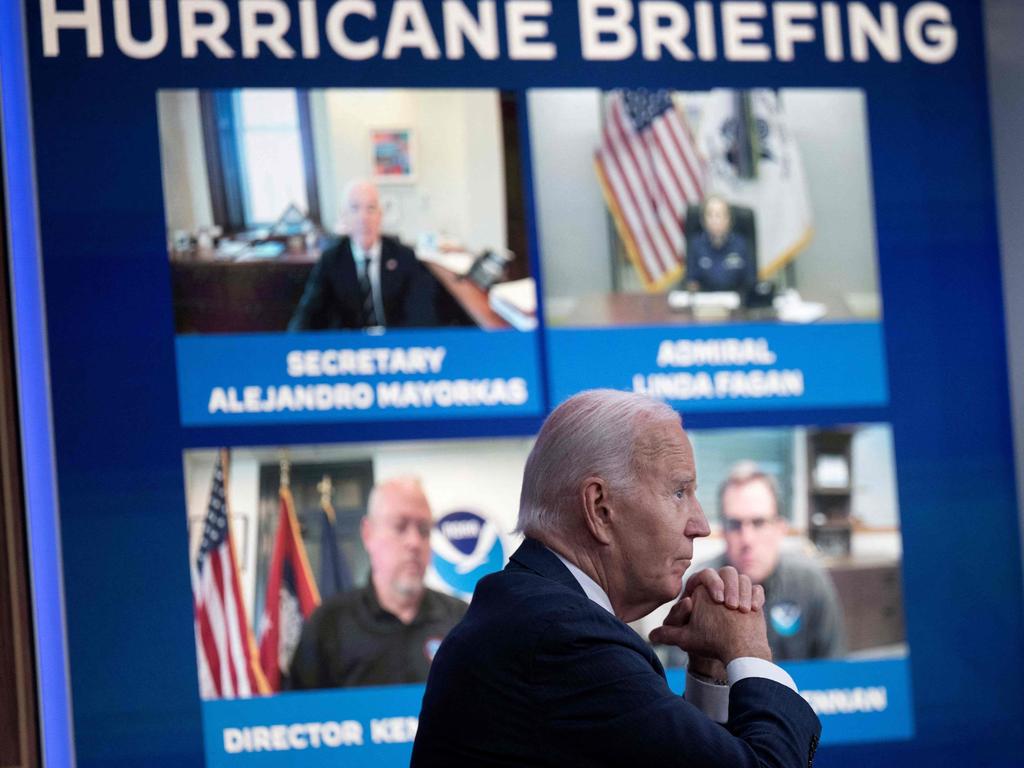Alligators displaced by Hurricane Milton are turning up in unexpected places
Wildlife experts are advising Floridians to leave the animals alone in the wake of Milton leaving at least 16 dead, millions without power.
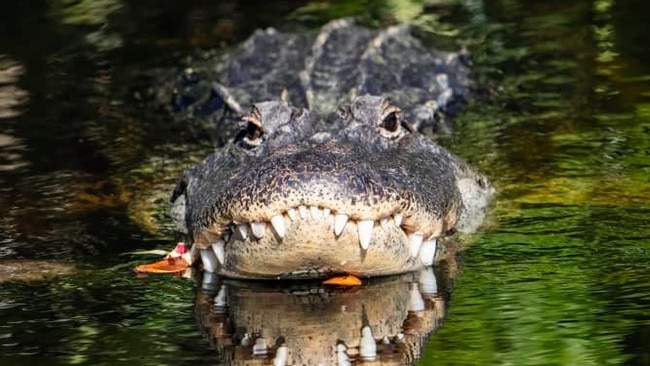
As Floridians emerge from Hurricane Milton, they are finding unexpected visitors in flooded streets, back yards or even their homes: displaced wild animals.
An alligator was caught on video Thursday morning resting on the porch of a home in Tampa.
Another lunged at the tire of a vehicle driving through floodwaters in North Fort Myers during the storm Wednesday night, according to a local news report.
The death toll from Hurricane Milton has risen to at least 16, officials in Florida said Friday, and millions were still without power as residents began the painful process of piecing their lives back together.
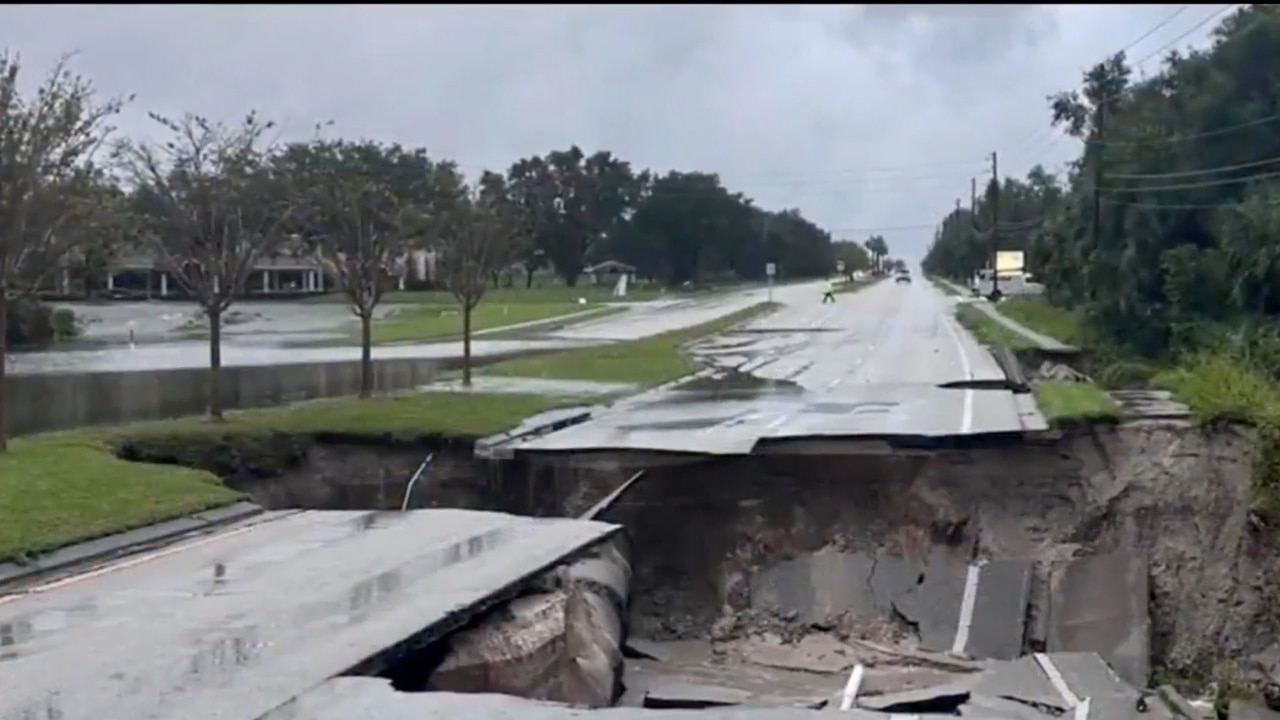
More than two million households and businesses were still without power, officials said, and some areas in the path that the monster storm blasted through the state remained flooded.
“There’s places where water is continuing to rise,” Governor Ron DeSantis warned on Friday. But while the storm was “significant,” he said, “thankfully this was not the worst-case scenario”.
In a White House briefing, US President Joe Biden said experts estimated the cost of storm damage at $US50 billion ($74bn).
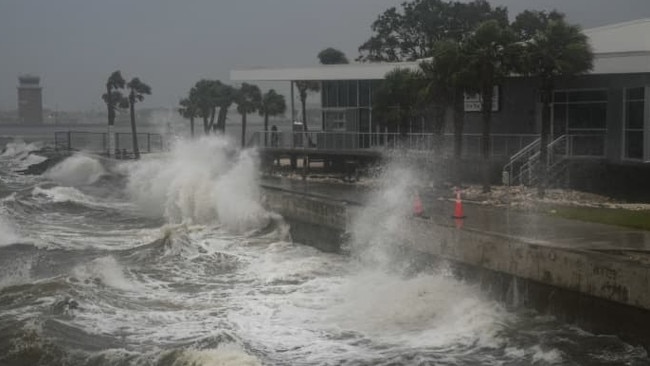
Meanwhile, wildlife experts are warning people to leave the alligators alone.
“Alligators really want nothing to do with us,” said Chris Gillette, a wildlife rehabilitator and co-owner of Bellowing Acres, an animal-rescue facility in northern Florida.
“But don’t go into alligator habitat, which is anywhere that has become flooded, especially if you can’t see.”
Florida’s semitropical climate is home to a variety of unusual wildlife, including 700 species of land animals, more than 200 species of freshwater fish, and thousands of terrestrial insects and other invertebrates, according to the Florida Fish and Wildlife Conservation Commission.
Wild mammals, snakes pushed out of their burrows, and insects might seek shelter in suburban back yards, according to Frank Mazzotti, associate professor of wildlife ecology at the University of Florida.
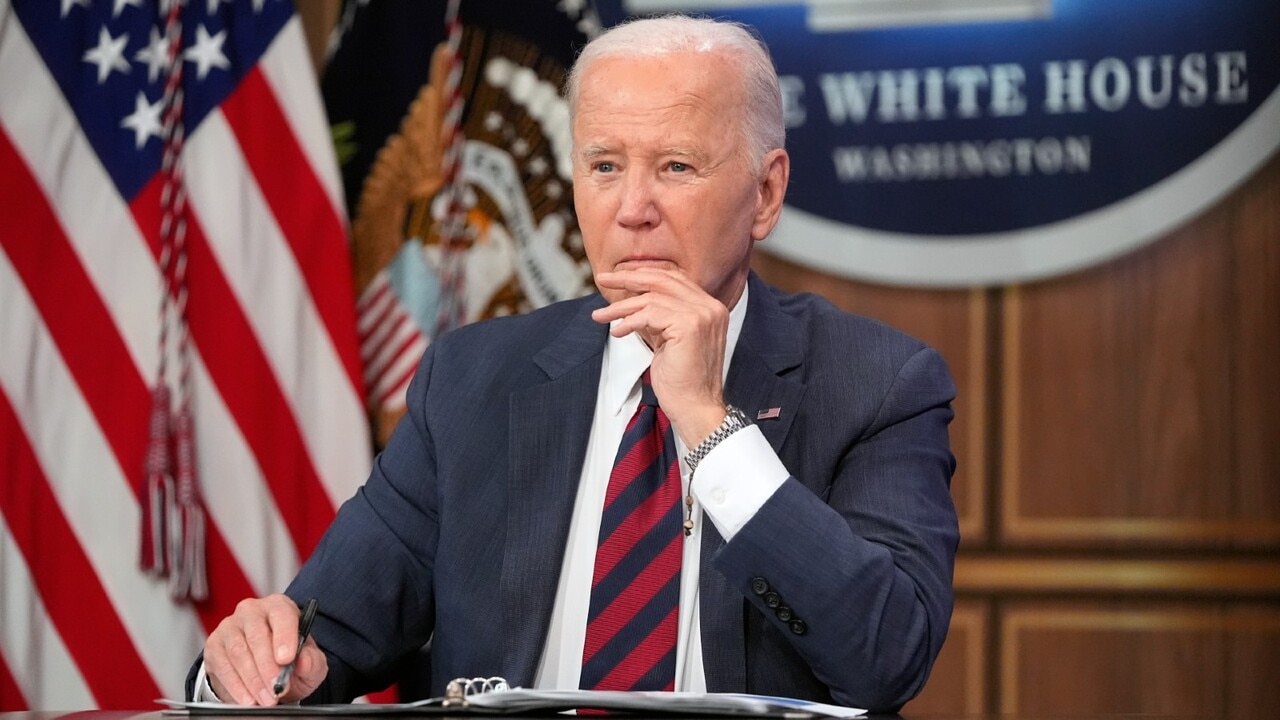
“Animals that like to keep their feet dry go to high ground, and that’s why people report seeing concentrations of snakes,” Mazzotti said.
The state is also home to an estimated 1.3 million alligators, although not all live in areas affected by Hurricane Milton, which crossed central Florida Wednesday night and early Thursday.
Like many animals, alligators can sense the drop in barometric pressure before a storm arrives.
“They’re just going to sink under the water, hold their breath for six hours and just sit there,” said Gillette, who tends to half a dozen alligators that were deemed a nuisance and brought to him by professional trappers.
When the storm clears, alligators begin to move again, and flooding allows them to move freely through places that would usually be obstructed by fences or land, Gillette said.
“You definitely have to be aware.”
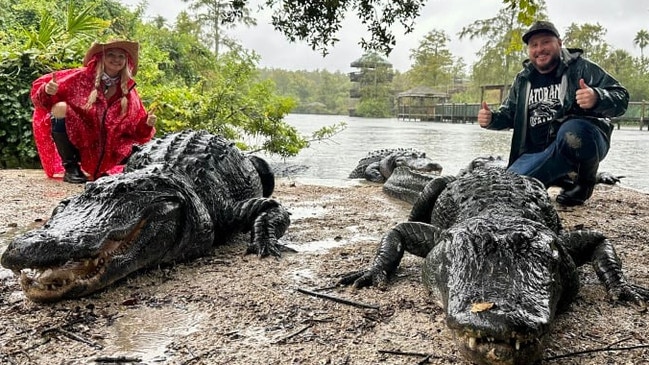
Alligators aren’t hunting for food during a storm and don’t need to eat as frequently as other animals, said Savannah Boan, a park director at Gatorland wildlife park in Orlando.
“In the wild they will eat maybe 10 or 15 times a year and be fine,” she said. None of Gatorland’s alligators and crocodiles have escaped in the park’s 75 years, Boan said.
Like many wild animals, alligators will bite if they feel threatened, but aren’t looking to eat people, according to all three wildlife experts. Between 1946 and 2022, there have been 26 human fatalities from alligator bites, according to Florida state figures. Two people were killed by alligators in Florida in 2023, according to news reports.
In 2017, Mazzotti and colleagues attached radio collars to eight alligators in Everglades National Park to track their movements. When Hurricane Irma came through that September, the researchers found the alligators didn’t seem very bothered. Most stayed close to their normal hunting grounds.
“Some animals tried to hide out, and some animals just were like nothing was happening,” Mazzotti said. “We didn’t notice a high degree of mortality or really any bad effects to the alligators.”
– with AFP
Dow Jones Newswires


